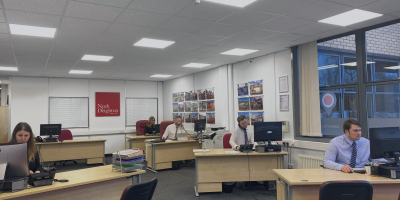
Questions Landlords need to ask when interviewing a potential Management Company
Owning investment property is a great option for those looking to make a long term commitment as opposed as a short term speculation. The management of such investment should always be trusted to professionals who are dedicated and committed to the industry and know how to deal with complex situations that are otherwise commonly ignored by inexperienced landlords.
It is of the utmost importance that property owners know how to select and interview the property management company that best seems to specialize in the kind of investment that they are looking to have managed.
If you are unsure what to ask your potential property manager before you sign a long term agreement with them, here are some questions that you can use as a guideline.
1. What kind of property management experience do you have? You need to know for how long they have managed property and what is their main business specialism.
2. How many properties do you currently manage? Hiring a property manager that handles several thousand units could be somewhat risky as your property might end up lost in an ocean of other properties. Likewise, a company who manages less than two hundred properties may indicate a lack of experience or limited resources.
3. Are you a member of a professional body that ensures Client Money Protection e.g. ARLA (The Association of Residential Letting Agents)? By the end of 2014 all letting and property management agents will be required to join a government approved redress scheme, but there is currently no regulation requiring the licensing of agents. Ensure both you and your tenants are protected from unscrupulous or rogue agents.
4. How often do you inspect occupied and vacant units? It is important to know the frequency of inspections in occupied units. The reasons why you need to know this information is because you need to be assured that there will be a comprehensive assessment of potential damage to occupied units that has been caused by tenants. You also need to know the frequency of inspection though vacant units to prevent any potential risk of fire or security issues.
5. How important is preventative maintenance to you and how is this handled by your company? Extensive and costly deterioration can occur to properties if there isn’t a preventative maintenance plan in place. Your property manager should keep a preventative maintenance log showing all items inspected and addressed as well as the signature of the maintenance supervisor acknowledging completion of all required tasks.
6. How do you handle ongoing/daily maintenance? You need to know whether one or more dedicated property managers will be assigned to your property. It is also important to know the level of engagement of the property manager (if any) and his/her role in ensuring that all maintenance issues are being addressed.
7. After hours emergency handling. Have the property manager explain their process for handling after hours emergencies such as water leaks, fire or any other casualties. Ask whether there is an after hours phone number which tenants would have access to.
8. Tenant Selection Plan. You need to know if the property manager has a Tenant Selection Plan that can be customized for your property. The TSP will help define the requirements that potential tenants would have to fulfill prior to renting a property to them. You might also be want to be involved in the development of the rental criteria to ensure that only applicant who meet your requirements are approved. Keep in mind that you as well as your property manager are required to observe and conduct business based on current Housing Laws. Your property manager should be absolutely familiar with what terms to use and which ones avoid when advertising your vacant properties and when interviewing applicants.
9. Transparency. How can I have access to review accounts payables, collections, etc. Your property manager should be able to provide these reports to you upon request.
10. Property Market Analysis. Does your management team shop comparable properties to keep up to date with local occupancy rates, average rent rates, amenities offered, specials, etc.? Please be aware that not all property management companies provide this service.
11. What is your area of specialty? It is important to keep in mind that there are several specialties within the property management industry. If you own residential property, you should probably stay away from property managers that have experience managing only commercial or multiple occupancy properties.
Retaining the right property manager can enhance the value of your investment property while making your life easier as you don’t have to deal with the headaches that this activity often represents. If you have plans to expand your property investment portfolio it is definitely worth having a strong property management company on your side.










 Payment
Payment








